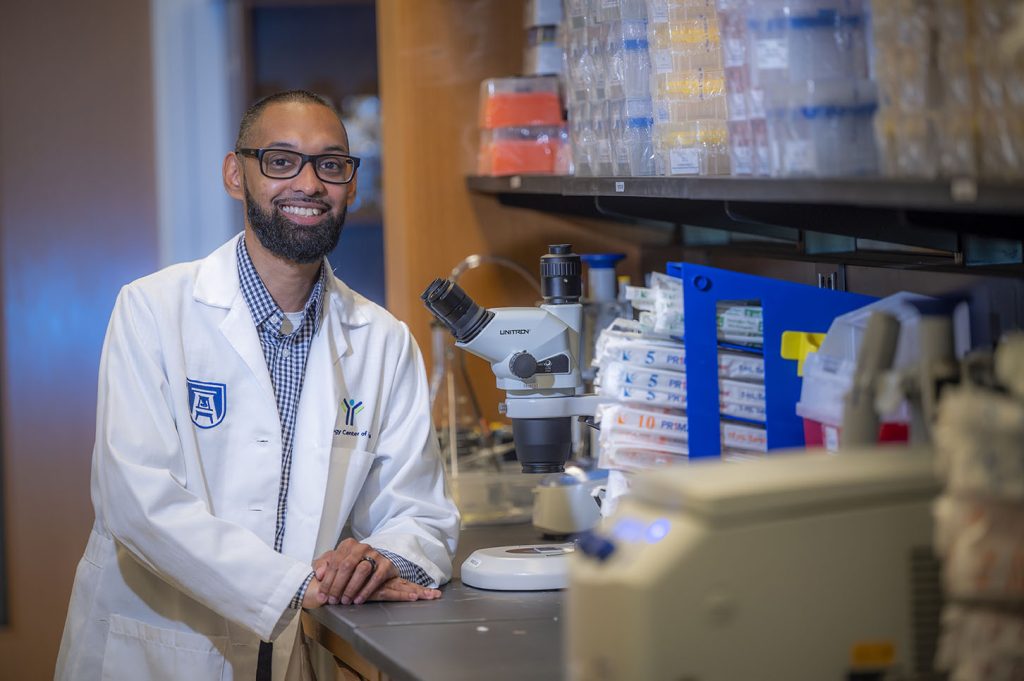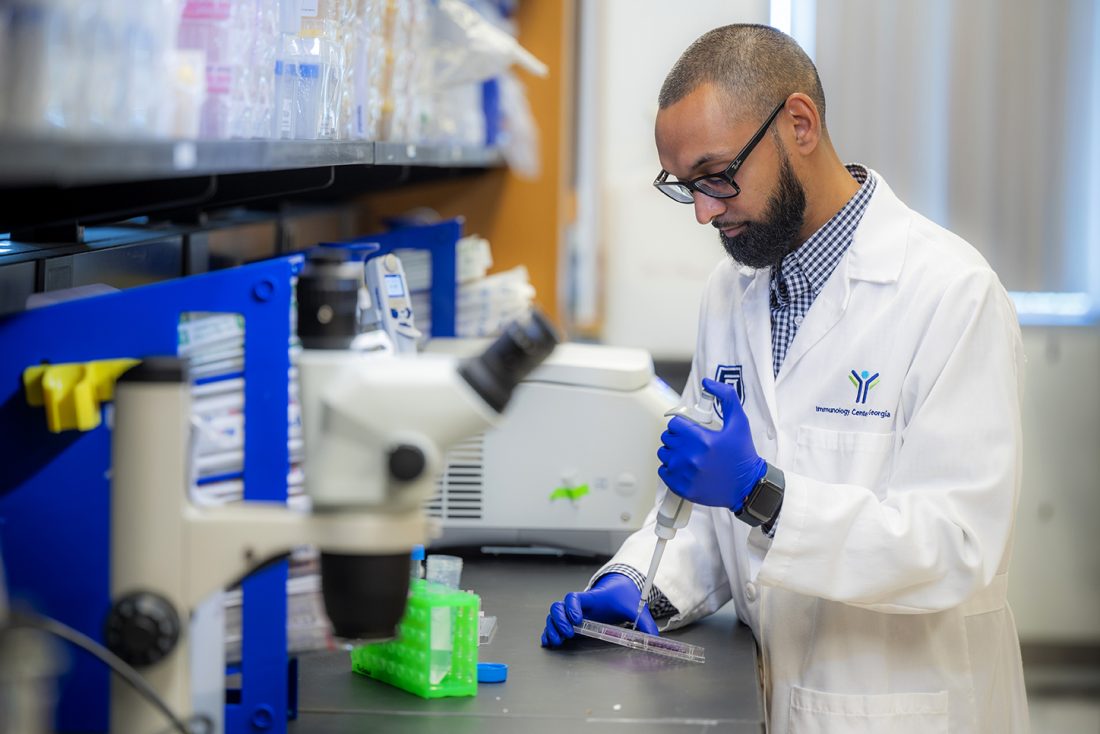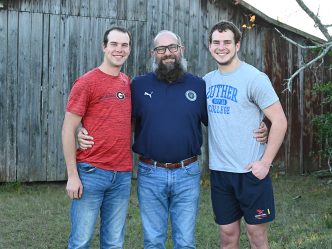Immunology Center of Georgia researcher Adil Rasheed, PhD, is shedding light on the distinct role of the spleen in atherosclerosis, a disease characterized by the buildup of fatty deposits in arteries.
While scientists have long understood that immune cells in both the spleen and bone marrow contribute to the development of atherosclerotic plaques, the specific processes within the spleen that lead to the production of these cells have been unclear, Rasheed said.
This new research, completed during Rasheed’s time at the University of Ottawa Heart Institute, identifies the mixed lineage kinase domain-like protein (MLKL) as a critical regulator in the spleen’s response to hyperlipidemia, a condition marked by elevated lipid levels in the blood.
“We’ve always known that immune cells in the spleen and bone marrow contribute to heart disease and atherosclerotic plaque development but understanding exactly how these cells are produced in the spleen has remained elusive,” said Rasheed, who joined IMMCG as an assistant professor in 2023. “Our research shows that the spleen and bone marrow are not analogous in this respect.”

“By silencing MLKL in splenic endothelial cells, we observed impaired endosomal trafficking and lipid accumulation, which promotes the production of myeloid cells from the spleen that are involved in plaque development,” Rasheed said. “This highlights MLKL as a key regulator in the splenic hematopoietic niche during atherosclerosis.”
The study, “Hyperlipidemia-induced Hematopoiesis is Repressed by MLKL in Endothelial Cells of the Splenic Niche,” shows that unlike bone marrow, where the regulation of immune cell production has been more extensively studied, the spleen’s unique environment responds differently under atherogenic conditions.
“The potential to differentially target the spleen from the bone marrow means we could neutralize this reservoir of immune cells during chronic cardiovascular disease, without completely hindering the body’s overall immunity,” Rasheed said. “This could lead to more effective treatments with fewer side effects.”
IMMCG, which is part of the Medical College of Georgia at Augusta University, is led by Georgia Research Alliance Eminent Scholars Klaus Ley, MD, and Catherine “Lynn” Hedrick, PhD.
“By identifying and targeting specific mechanisms in the spleen, we can potentially improve treatments for a variety of conditions, including cancer, autoimmune diseases and other illnesses where immune cell production plays a critical role.”
Catherine “Lynn” Hedrick, PhD, co-director of IMMCG
“Dr. Rasheed’s work exemplifies the kind of innovative research we are committed to at the Immunology Center of Georgia,” said Hedrick. “Understanding the distinct roles different organs play in immune regulation is crucial for developing targeted therapies. The implications of this research extend far beyond cardiovascular disease. By identifying and targeting specific mechanisms in the spleen, we can potentially improve treatments for a variety of conditions, including cancer, autoimmune diseases and other illnesses where immune cell production plays a critical role.”
Looking forward, Rasheed and his team at IMMCG plan to delve deeper into the splenic microenvironment and identify additional targets. Their goal is to develop therapies that finely tune the immune response, reducing the risk of heart attack and other complications associated with chronic cardiovascular disease.
“This study lays the groundwork for understanding the unique processes occurring in the spleen, and it opens the door to identifying more pharmacologically relevant targets that could lead to innovative therapies for cardiovascular disease and beyond,” Rasheed said.
 Augusta University
Augusta University




